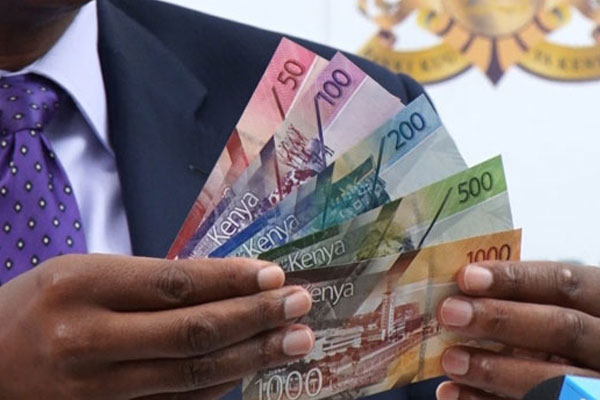Ten countries with high wage bills in Africa
By Barry Silah, December 8, 2020Increasing the minimum wages in African countries can enhance the living standards of Africans while tackling poverty and closing the inequality gap and making everyone feel happier if the wealth trickles down. That is why many African countries have passed minimum wage bills into law to cushion the citizens. Even though this is a statistical average, herein is a list of some wage indicators:
Seychelles
The island nation has the highest minimum wage in Africa. A Seychellois worker earns 5,276 dollars yearly, which could be converted to Sh580,360.
In May 2020, Seychelles’ president, Danny Faure, increased the minimum wage and pension so as to give his citizens a better life.
The monthly salary for most Seychellois is now 424 dollars (approx. Sh46,640).
Seychelles has the highest Human Development Index in Africa, and it is, according to the World Bank, a high-income economy.
According to the 2018 World Bank Report the Gross Domestic Product of the island nation is $1.59 billion (Sh177 billion).
Morocco
An average Moroccan worker is paid about $265 dollars (Sh29,520) per month if he works in the public sector, then the earning increases to $310 (Sh34,100) monthly.
Morocco’s economy is capitalist and is one of Africa’s top quality-of-life country.
In Morocco, the employment rate measures the number of people who have a job as a percentage of the working-age population.
Incidentally, the employment rate in Morocco decreased to 37.90 percent in the third quarter of 2020 from 39.30 percent in the second quarter of 2020.
Morocco has a highly diversified economy with a strong tourism, service, textile and telecoms industry.
South Africa
South African president, Cyril Ramaphosa signed a new minimum wage into law in 2018. The minimum wage in South Africa is pegged at 3,500 Rands (Sh23,430) per month.
South Africa has one of the highest purchasing power parity in Africa. Though poverty, unemployment and inequality remain a big problem, South Africa has huge economic potential and is a very business-friendly economy.
According to The CareerJunction Index (CJI), hiring activity increased by 4 per cent during September while job search activity increased by 12 per cent.
Gabon
Workers in Gabon earn $225 (Sh24,750) monthly as minimum wage. In addition to that, the Gabonese government pays $34 per child (Sh3,740) as a monthly allowance, in addition to other benefits.
Gabon’s economy is oil-dependent and has helped increase the standards of living in the country.
The economy also has a thriving extractive industry. Government workers also receive transportation, housing, and family benefits.
The law does not mandate housing or family benefits for private-sector workers.
Libya
Despite civil war breaking out in the North African country, the livelihood of the workers is still good albeit changed a bit.
A Libyan worker earns up to $325 (Sh36,200) monthly. The government also pays rent, power, and water subsidy for their citizens.
Libya is Africa’s fourth-largest country and among the largest in the world. It has an enormous crude oil reserve and a fairly prosperous economy.
Equatorial Guinea
Equatorial Guineans earn $224 (Sh24,640) monthly minimum wage. The country is an oil-dependent economy and generates revenue from forestry, farming and fishing.
Before independence, the Spanish subsidized cocoa and coffee exports to Spain. The high-quality cocoa was the mainstay of the economy of Bioko, which possessed the right soil and climate for its intensive cultivation.
Major trading partners include the USA, France and China. Equatorial Guinea is a challenging work and social environment.
The majority of roles for highly skilled individuals come in the form of oil and gas work.
Congo-Brazzaville
Workers in Congo earn $170 (Sh18,700) monthly minimum wage. The economy of Congo is dependent on oil though there are a thriving agriculture and forestry industry.
The Congolese economy also has large mineral reserves. Congo’s economic growth has remained on track despite a weak domestic political environment.
It is among the top five oil producers in Sub-Saharan Africa. Oil production comes almost entirely from offshore oil fields.
Congo exports almost all of its oil production, and the largest recipients are China and the European Union.
Angola
The minimum wage is fixed by Decree of the Council of Ministers recently adjusted wage minimum in the southern African country to $67.5 (Sh7,425) but has been criticised by analysts as insufficient given the inflation.
The government may exclude workers covered by a collective agreement signed within the 6 months preceding the issue of the Decree fixing the minimum wage.
All full-time workers are covered by minimum wage regulations. Nevertheless, the government may exclude workers covered by a collective agreement signed within the 6 months preceding the issue of the Decree fixing the minimum wage.
The legislation allows for a combination of national, regional, and sectoral minimum wages.
Kenya
Minimum Wages in Kenya remained unchanged at Sh13,572 per month in 2020 from Sh13,572 in 2019. Minimum Wages in Kenya averaged Sh6522.44 in 1994.
The general working hours are 52 per week, but the normal working hours usually consist of 45 hours of work per week, that is Monday to Friday 8 hours each and 5 hours on Saturday under the special orders for different sectors subsidiary to the Regulations of Wages and Conditions of Employment Act, Cap 229.
The private sector in the country traditionally pays better for skilled employees, especially in the banking, insurance, technology, and engineering sectors.
Botswana
Botswana’s hourly minimum wages increased by 17 per cent on July 1, 2019.
The hourly minimum wage increased to 6.77 pula (Sh70.4) for most industries the Ministry of Employment, Labour Productivity and Skills Development said in a news release.
For the retail distribution industry, the hourly minimum wage increased to 6.01 Pula (Sh62.70) per hour.
